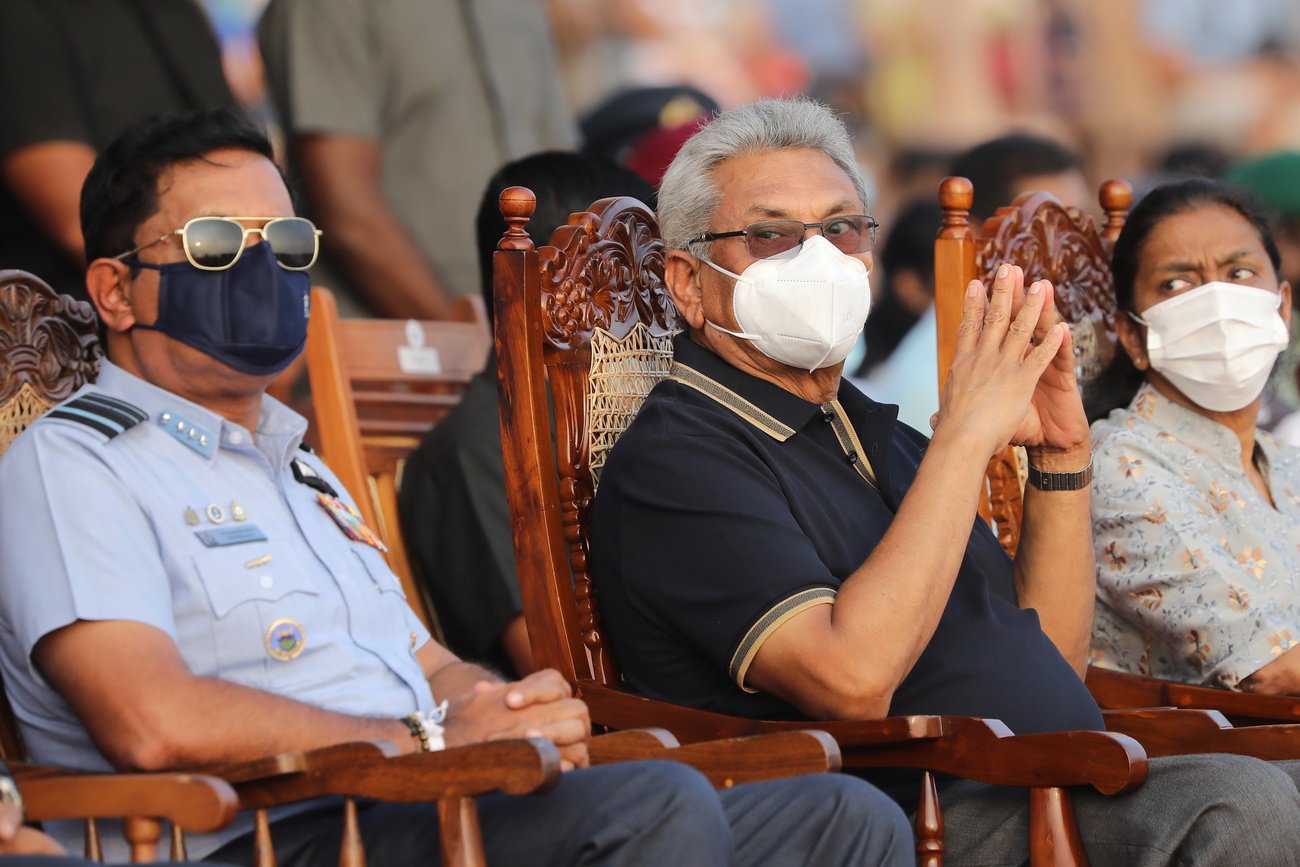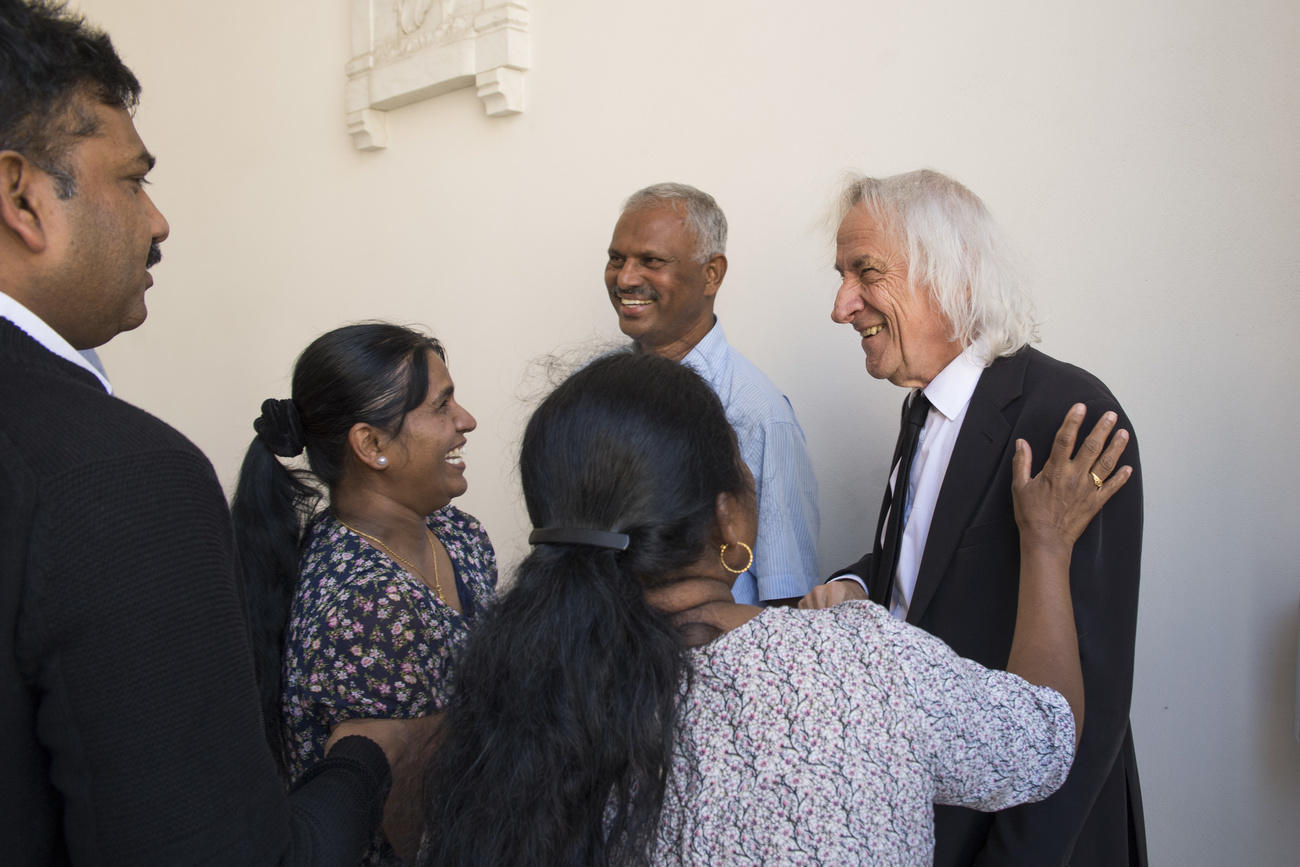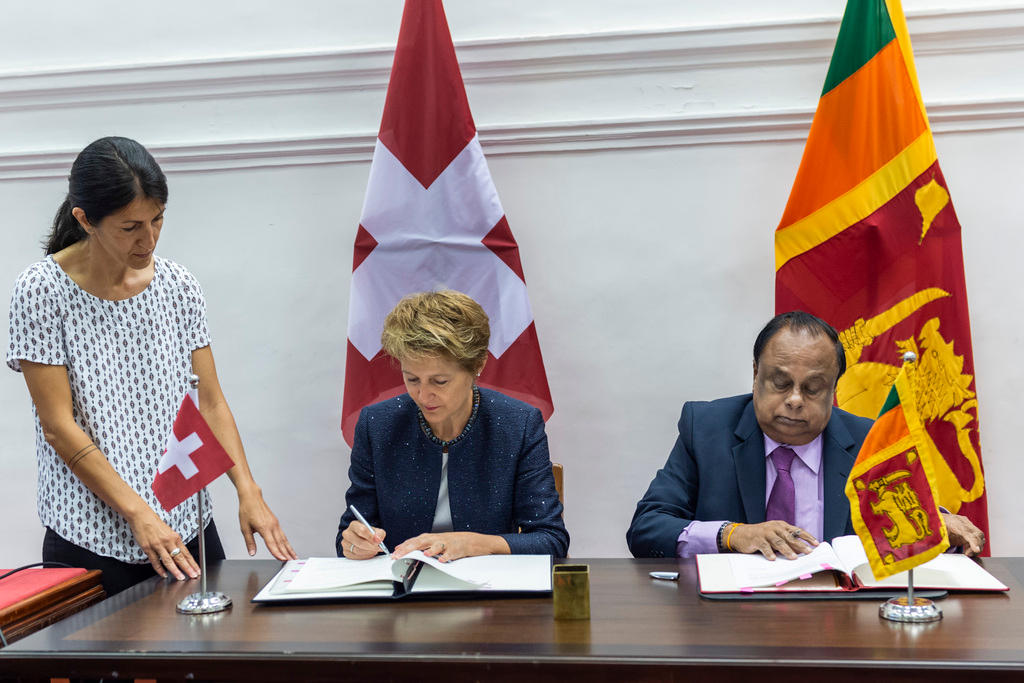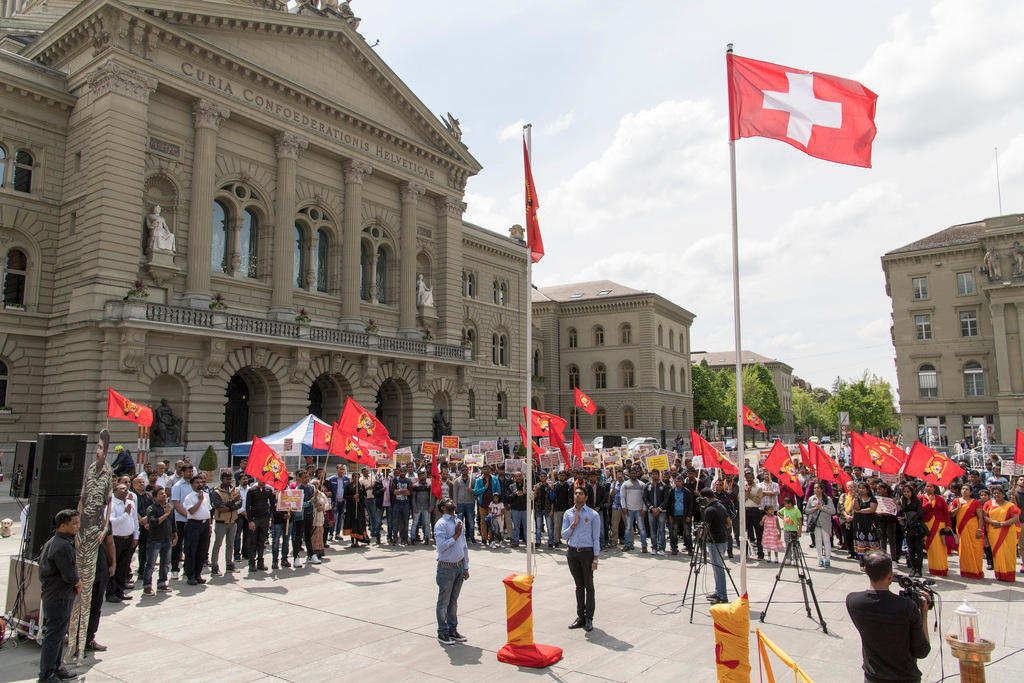Will Sri Lanka human rights report change Swiss asylum policy?

The UN Human Rights Council on Tuesday passed a resolution expressing serious concern about the human rights situation in Sri Lanka and giving a UN mandate to collect evidence of war crimes. This follows a damning report stressing not only impunity for serious crimes during the civil war but a deteriorating human rights situation since the election of President Gotabaya Rajapaksa in November 2019. The resolution was supported by 22 countries including Switzerland, home to an important Sri Lankan community.
We look at how this might affect Swiss asylum policy, and whether it could make any difference to the situation in Sri Lanka.
The Sri Lankan civil war pitted a government favourable to the majority Sinhalese population against the Liberation Tigers of Tamil Eelam (LTTE) fighting for a separate homeland in the north and east for the minority Tamils. The war lasted some 25 years and grave abuses, amounting to probable war crimes and crimes against humanity, were committed on both sides. The LTTE used suicide bombers and child soldiers. In response government tactics, especially in the final stages of the war, were merciless. Tens of thousands of Tamil civilians were killed. Current president Gotabaya Rajapaksa, who was defence chief at the time, is widely considered to be the man who ordered the final assault in 2009 that ended the civil war.
Since then, successive governments have made promises on justice and accountability, and the UN Human Rights Council has given them more time. The previous government of Maithripala Sirisena, elected in 2015, co-sponsored a UN Human Rights Council resolution with a roadmap for transitional justice. There was little follow-up. The current government has withdrawn from the resolution, saying it will conduct its own process. Kannanathan Rajgana, a member of the Swiss Tamil diaspora and chairman of a new NGO lobbying the UN on human rights issues, says the Sri Lankan government has just been playing for time and in the meantime removing evidence of crimes.
Warning of more abuses
In a report to a session of the Human Rights Council in Geneva on February 24, UN High Commissioner for Human Rights Michelle Bachelet argued that “domestic initiatives have repeatedly failed to ensure justice for victims and promote reconciliation”. She added that: “the systems, structures, policies and personnel that gave rise to such grave violations in the past remain – and have recently been reinforced”. Bachelet says that people implicated in serious human rights violations are still in positions of power and that there is increasing militarisation of civil space. “Tamil and Muslim minorities are being excluded by divisive and discriminatory rhetoric including from the highest State officials,” she said
Bachelet ended with a call for the Human Rights Council to “explore new ways to advance various types of accountability at the international level”, including a possible referral to the International Criminal Court (ICC), judicial proceedings against individuals in other UN member states under the principle of universal jurisdiction, and “a dedicated capacity to collect and preserve evidence and information for future accountability processes”. The Council has now given her office a mandate and resources to do this.
Swiss Tamils have largely welcomed the report, according to Rajgana, chairman of the NGO International Humanitarian Approach. “Compared with the previous report (to the Human Rights Council) it is quite damning,” he said. Rajgana welcomes the fact that it specifically mentions Tamils and Muslims as being targeted by the Sri Lankan government but regrets that it sets no deadlines for human rights improvements.
However, Rajgana thinks the resolution could have been stronger. “In the Tamil diaspora the main thinking is that there should be a criminal investigation, especially focusing on what happened in 2009,” he said.
Swiss concerns
Switzerland also spoke up at the Human Rights Council, saying it “remains deeply concerned by this impunity in the face of international crimes and grave violations of human rights suspected to have been committed more than ten years ago”. It said Sri Lanka remained in a “state of denial of the past” and called on the Sri Lankan government to implement the recommendations in Bachelet’s report. “At the same time, it encourages the Human Rights Council to take new steps in favour of victims and justice in Sri Lanka,” says the Swiss statementExternal link.
Asylum policy review?
What does this mean for Switzerland’s future asylum policies? Bachelet’s report recommends that countries “review asylum measures with respect to Sri Lankan nationals to protect those facing reprisals and avoid any refoulement in cases that present a real risk of torture or other serious human rights violations”.
There are more than 50,000 people of Sri Lankan origin living in Switzerland, many driven here by the 25-year civil war, but also continuing to arrive in recent years. They represent the largest diaspora community from outside Europe. Most are ethnic Tamils, and many have obtained Swiss citizenship.
The Swiss Refugee Council (SRC) in February called on the Swiss government to re-examine its policy on asylum seekers from Sri Lanka in the light of Bachelet’s report. “In our view, the SEM (State Secretariat for Migration) must analyse carefully the deterioration of the situation in the country and adapt Swiss asylum policy accordingly,” the SRC said in a statementExternal link. “In the meantime, there should be no deportations.”
The SRC also called for suspension of the migration partnership between Switzerland and Sri Lanka “until it is clear that the conditions for such a partnership exist”. This 2016 partnership agreement covers, among other things, the repatriation of Sri Lankans who no longer fulfil the conditions for continued residence in Switzerland.
“No plans”
Adrian Schuster, country expert on Sri Lanka at the SRC, says Swiss asylum policy with regard to that country has evolved over the years. Deportations were temporarily suspended in 2013 after reports that two Sri Lankans sent back from Switzerland had been detained and tortured. He says policy was changed in 2014 and it became easier for Sri Lankans to obtain asylum. In 2016 (after the election of Sirisena in 2015) it was changed again and became more difficult. But now the SRC wants a reassessment after the election of President Gotabaya Rajapaksa in November 2019. “We think it’s high time for a new analysis leading to a new policy,” Schuster said.
Asked about the Swiss government’s current policy, the State Secretariat for Migration (SEM) said that there was currently no reason to assume a general risk of danger in Sri Lanka or that entire ethnic groups were at risk. “Therefore, the return practice of Sri Lankan nationals without regular residence in Switzerland has not changed; the SEM continues to examine each individual case carefully and precisely. Due to the Covid-19 pandemic, repatriations are delayed, but a general suspension is currently not planned.”
So despite the concerns Switzerland has expressed at the UN Human Rights Council, its asylum policy with regard to Sri Lankans is not changing for the moment. Tamils in Switzerland will no doubt be keeping up the pressure along with human rights organisations.

More
Swiss or Tamil? Caught in the middle

In compliance with the JTI standards
More: SWI swissinfo.ch certified by the Journalism Trust Initiative














Join the conversation!